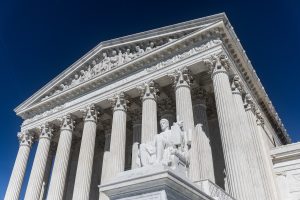Whistleblower Reward Laws including the Federal False Claims Act and Bounty Actions collect billions in wealth each year. These laws offer large financial rewards to professionals with specialized knowledge of fraud. These laws pay rewards based on a percentage of the amount recovered by the government. The government collects over $5 billion annually through these laws and pays large rewards to whistleblowers.

The Federal False Claim Act Collects Over $3 Billion in 2019
The Department of Justice uses the Federal False Claims Act to regulate government purchasing. More specifically, this Whistleblower Reward Law targets Medicare, TRICARE, and Medicaid fraud. It also targets fraud committed by federal government contractors including defense contractors.
The Federal False Claim Act helps the government recover taxpayer money. The Act serves as the government’s primary civil tool to redress false claims for federal funds and property. The Act also helps protect our military and first responders by ensuring that government contractors provide equipment. It also protects American businesses and workers by promoting compliance with customs laws, trade agreements, visa requirements, and small business protections. The Act also protects other critical government programs ranging from the provision of disaster relief funds to farming subsidies.
Since amendments to the law in 1986, the federal government increasingly uses this law collecting over $62 billion. Further, this law brought in more than $3 billion in recoveries in 2019. Use of this law will continue into the future.
Whistleblowers Can Earn Between 15% to 30% of Recovered Funds through the Federal False Claims Act
In 1986, Congress strengthened the Act by increasing incentives for whistleblowers to file lawsuits alleging false claims on behalf of the government. These whistleblower, or qui tam, actions comprise a significant percentage of the False Claims Act cases that are filed. If the government prevails in a qui tam action, the whistleblower, also known as the relator, typically receives a portion of the recovery ranging between 15 and 30 percent. Whistleblowers filed 633 qui tam suits in fiscal year 2019.
Bounty Actions Also Recover Significant Wealth for the Government and Offer Large Financial Rewards
Other whistleblower reward laws including SEC and CFTC bounty actions also collect billions for the government. These bounty actions target fraud in the financial markets. Further, these bounty actions allow whistleblowers to anonymously report fraud and collect large financial rewards.
More Information on Whistleblower Reward Laws
Persons with original knowledge of significant fraud are encouraged through financial rewards to expose fraud. However, whistleblowers must properly report fraud to qualify for a reward. Further, different whistleblower rewards and protections apply to different types of fraud. For these reasons, it often helpful to understand the different laws and have a lawyer review any potential case.
For more information on whistleblower reward laws, please go to the following webpages: Whistleblower Reward Lawyer, CFTC Bounty Actions, and SEC Bounty Action and Investment Fraud.